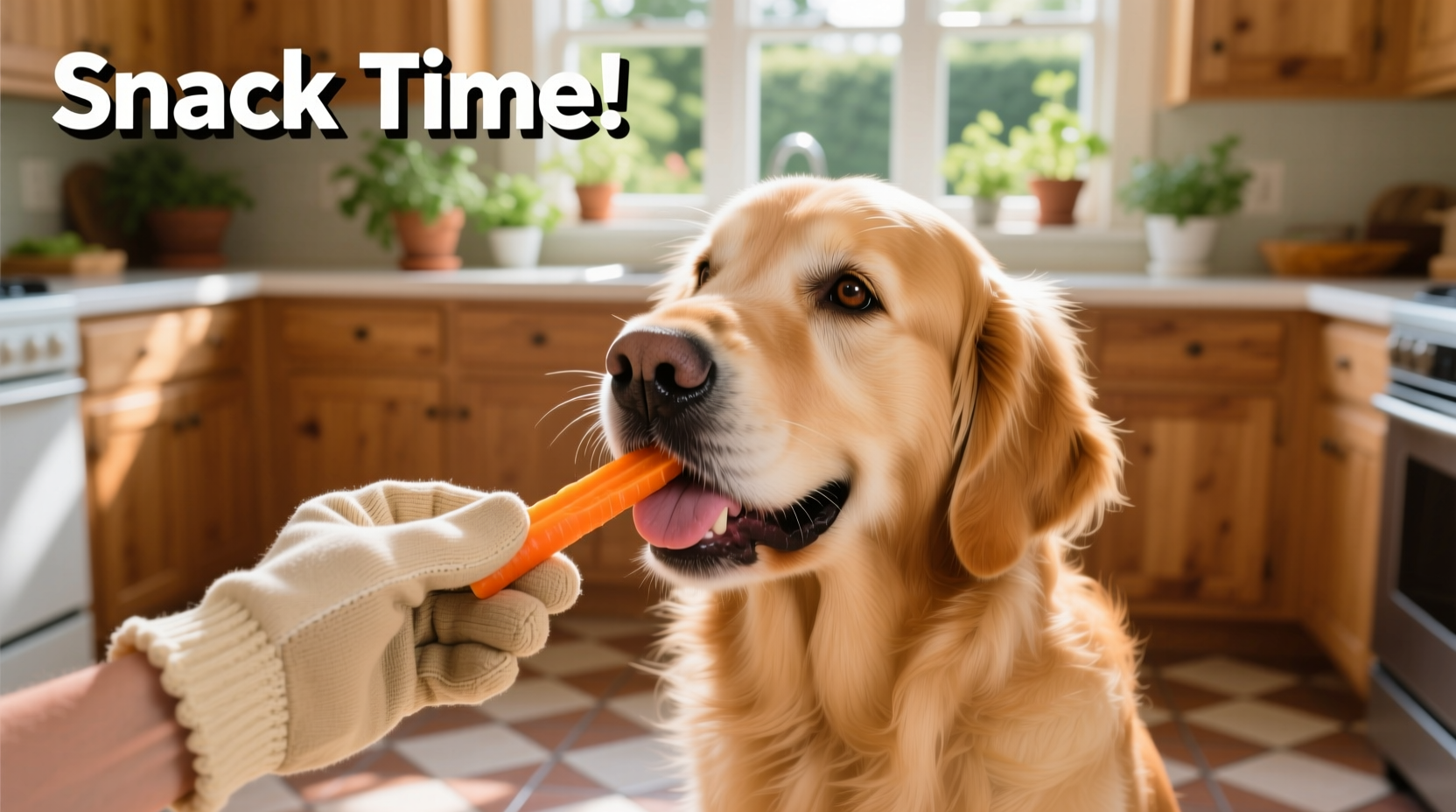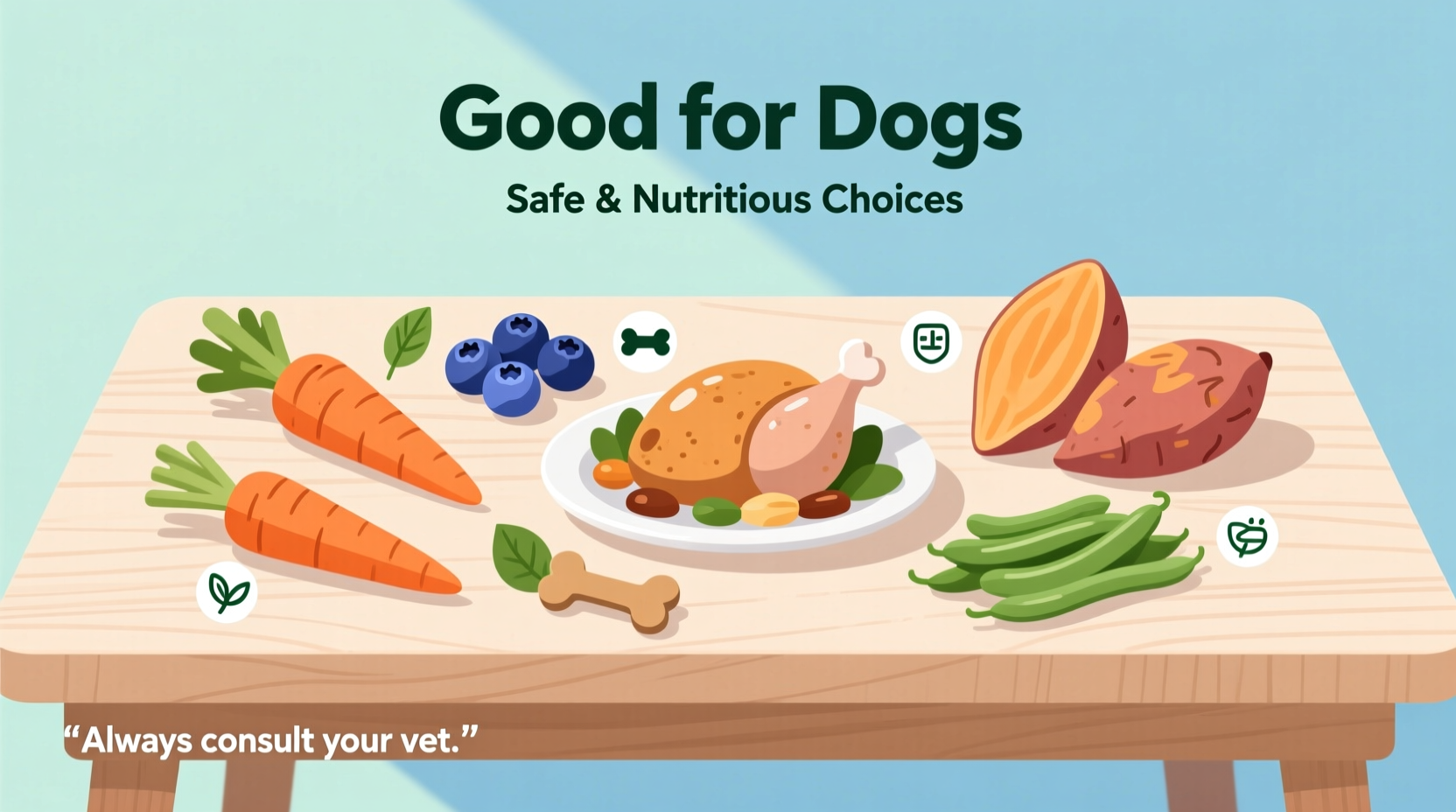Based on veterinary consensus, dogs can safely eat carrots, green beans, apples (seedless), blueberries, plain cooked chicken, and pumpkin. Avoid toxic foods like chocolate, grapes, onions, and xylitol. Always introduce new foods gradually and consult your vet for breed-specific needs.
Wondering what human foods you can safely share with your furry friend? You're not alone—over 68% of dog owners occasionally feed table scraps, but many don't know which foods boost health and which pose life-threatening risks. This guide delivers vet-verified answers so you can nourish your dog safely without guesswork.
Top 10 Safe Human Foods for Dogs (With Benefits)
These common kitchen staples provide nutritional perks when prepared correctly. Always serve in moderation—treats should never exceed 10% of daily calories.
1. Carrots: Crunchy Dental Health Boosters
Raw or steamed carrots clean teeth naturally while delivering beta-carotene for vision health. Freeze them for teething puppies. Portion tip: 1-2 baby carrots for small dogs, 2-3 for large breeds.
2. Green Beans: Zero-Calorie Satisfiers
Packed with fiber and vitamin K, plain green beans help overweight dogs feel full. Choose fresh or frozen (thawed), never canned with added salt. The ASPCA confirms they're among the safest vegetable options for canine digestion.
3. Blueberries: Antioxidant Powerhouses
These tiny berries combat cellular aging with anthocyanins. A 2023 University of Illinois study showed improved cognitive function in senior dogs fed blueberries daily. Toss a tablespoon into meals or freeze for a cool summer treat.
4. Plain Cooked Chicken: Lean Protein Source
Boneless, skinless chicken breast provides essential amino acids for muscle maintenance. Ideal for dogs with sensitive stomachs during recovery. Preparation rule: Boil without onions or garlic—common seasonings that turn safe food toxic.
5. Pumpkin: Digestive Regulator
Plain canned pumpkin (not pie filling) resolves both diarrhea and constipation. The fiber promotes healthy gut bacteria. Veterinarians at Cornell University's College of Veterinary Medicine recommend 1-4 tablespoons daily depending on size.

Critical Foods to Avoid: The Toxicity Timeline
Some human foods cause immediate harm, while others trigger slow organ damage. This timeline shows symptom progression based on ASPCA Poison Control data:
| Toxic Food | Onset of Symptoms | Critical Danger Signs | Source Verification |
|---|---|---|---|
| Chocolate | 2-4 hours | Vomiting, seizures, cardiac arrest | ASPCA.org |
| Grapes/Raisins | 6-12 hours | Kidney failure, reduced urine output | AKC.org |
| Xylitol (sugar-free products) | 10-60 minutes | Hypoglycemia, liver failure | CornellVet.edu |
Context Boundaries: When "Safe" Foods Become Risky
Even vet-approved foods require caution under specific conditions:
- Dogs with pancreatitis: Avoid high-fat foods like salmon skin—even healthy options can trigger flare-ups
- Diabetic dogs: Limit fruits like bananas; opt for low-sugar veggies like zucchini instead
- Puppies under 6 months: Skip hard vegetables that pose choking hazards; steam until soft
- Brachycephalic breeds: Bulldogs and pugs need smaller portions to prevent bloat from air swallowing
Safe Introduction Protocol: 4-Step Method
Follow this veterinarian-recommended process to prevent digestive upset:
- Start tiny: Offer 1 teaspoon of new food
- Wait 24 hours: Monitor for vomiting or diarrhea
- Gradual increase: Double portions every 3 days if no issues
- Permanent integration: Only after 2 weeks of tolerance
Never feed cooked bones—they splinter and cause internal injuries. Stick to raw, meaty bones under supervision per American Kennel Club guidelines.
When to Call Your Veterinarian Immediately
Seek emergency care if your dog consumes:
- Any amount of chocolate (especially dark varieties)
- Onions or garlic (causes hemolytic anemia)
- Sugar-free gum (xylitol concentration is lethal)
Keep the ASPCA Animal Poison Control number (888-426-4435) saved in your phone. Note: They charge a $65 consultation fee.
Final Safety Checklist
Before sharing human food:
- ✓ Remove all pits, seeds, and cores
- ✓ Avoid seasoning, oils, or butter
- ✓ Confirm no toxic ingredients in recipes (e.g., onion powder in baby food)
- ✓ Consult your vet about breed-specific sensitivities











 浙公网安备
33010002000092号
浙公网安备
33010002000092号 浙B2-20120091-4
浙B2-20120091-4